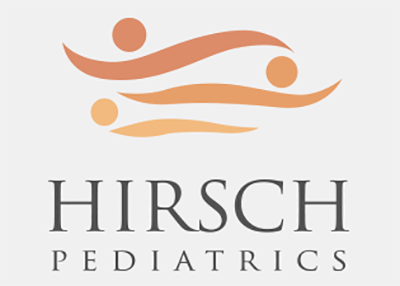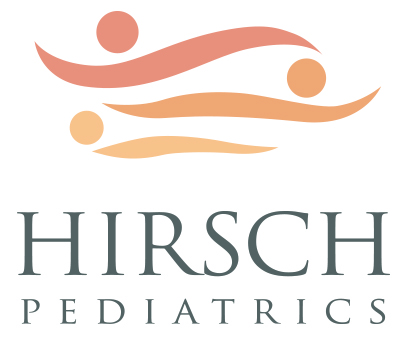Please Note: These guidelines are only for children who are fully vaccinated with no chronic medical illnesses.
These guidelines provide general guidance and should not be used as a substitute for the individual advice provided over the phone or at an appointment. If you have any significant or ongoing concerns, please call the office. Please contact Hirsch Pediatrics or go to the ER if your child is under 2 months old and has a fever (rectal temperature of 100.4 Fahrenheit or 38 Celsius).
These guidelines are written for patients of Hirsch Pediatrics and may not be copied or used without the written permission of Dr. Hirsch.
Car Travel –
Your car trip may take a lot longer. Plan on taking a break at least every 1 and 1/2 hours unless the baby is sleeping–then stop as soon as your baby wakes up.
- Remember to always use a car seat when you take your baby in the car.
- When travelling on north-south routes during the day, the sun may be particularly strong on a side seat so you may need to have a car window shade.
- Bring extra wipes in the car for unexpected (or expected) big messes.
- Bring healthy snack foods in case your baby decides to sleep through scheduled meal stops and you decide to make time rather than stop and wake the baby up.
Air Travel –
You may notice that your ears “pop” with pressure changes during takeoff and landing. Fortunately, though this temporary discomfort may be felt by a baby, it is usually very mild and does not require any special preparation. In fact, the next time you fly and feel your ears pop, you will notice that most babies are still calm and comfortable. If your baby does show significant discomfort, you can try feeding since sometimes swallowing helps equalize the air pressure. Note: It is safe to fly even when your child has a cold.
- Despite recommendations from other family members or friends, you should NOT give your baby any special medications or sedatives to make him/her sleepy on the flight. Because many babies will not be able to stay asleep on a long flight, those that have been sedated can become extremely overtired and scream from exhaustion.
- Some airlines may offer special discounts when booking a seat for children under 2. Children under the age of 2 years travel free on most airlines, but this means that they may have to sit on your lap if the plane is full.
- There are FAA-approved car seats. Check on this when purchasing your car seat. A car seat is generally not counted as a carry-on item as long as your child is sitting in it. If you stow it in the overhead because your child is sitting on your lap, it may be counted as a carry-on.
- If possible, reserve a bulkhead seat (just behind the bulkhead that separates coach and first class) because it has the most room. For international flights find out if the airline can provide you with a bassinet that can attach to the bulkhead wall.
- Give yourself plenty of time at the airport.
- If you are traveling by yourself and will not be met at your destination, a portable stroller is a lifesaver. You can generally fold it up and check it at the plane to be ready for you as soon as you step off of the plane.
- For takeoff and landing, put the seat belt just around you and hold your baby on your lap or put the baby in a front carrier. Do not place the seat belt around the baby.
- Car rental agencies generally have infant seats available with their cars. You need to reserve the seat when you reserve the car as well as call ahead to the local agency where you will pick up the car to confirm that the car seat is available.
Hotels –
Though you can reserve a crib at most hotels, many families find it much easier to bring your own “pack n’ play” when travelling. Bring a few familiar items that the baby has in his crib at home (such as rattles or stuffed animals). Note: If your baby is used to sleeping in his/her own room, you may need to sit quietly out of sight while your baby is falling asleep. You can even sit in the bathroom and read while you wait.
- Ask if there is a refrigerator in the room. Some hotels will put a temporary refrigerator in your room for an extra charge.
- Follow your baby’s normal eating, sleeping, and bedtime routine as much as possible.
Travel Immunizations and Medications –
Certain special vaccines are necessary to prevent diseases you might be exposed to during travel to other parts of the world. These vaccines include typhoid fever, yellow fever, meningitis, and Japanese encephalitis. If you are going to a part of the world where malaria is common, you may need to take medicine to prevent malaria.
To get up-to-date travel information on travel immunizations and medications, please review the following two resources at least 2 months prior to travel:
Centers for Disease Control and Prevention (CDC) via the Traveler’s Health Hotline at 1-877-FYI-TRIP or online at http://www.cdc.gov/travel
Travel Health Online: http://www.tripprep.com
Note: If you still have questions or will need a travel vaccine, please schedule an appointment with a specialty travel clinic. Travel clinics are very common in the DC area. The following clinic is located ½ mile from Hirsch Pediatrics.
Travel Advisory and Immunization Clinic
15005 Shady Grove Road, #450
Rockville, MD 20850
tel 301-738-6420
Looking for something else? Click here to view all of Dr. Hirsch’s medical advice topics.

